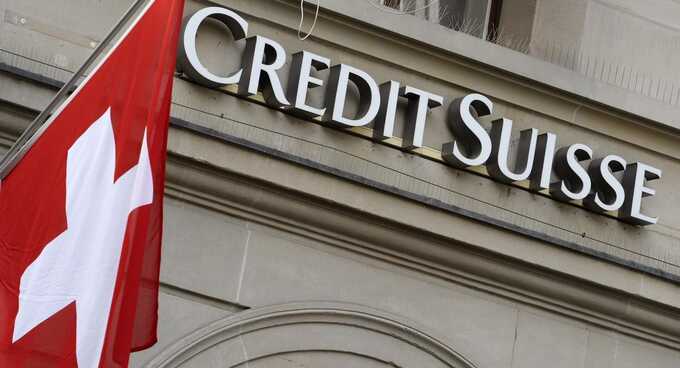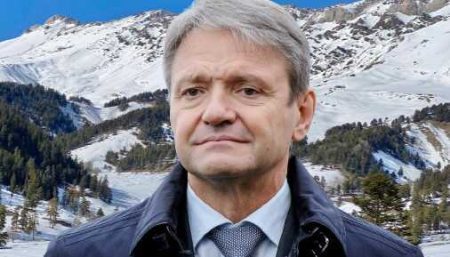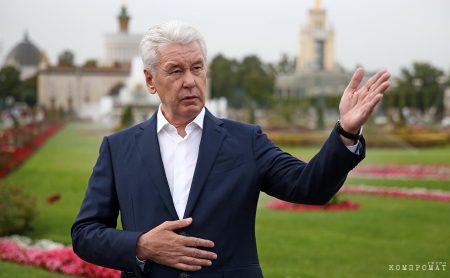The BRC reported that individuals involved with the Belarusian authorities hid money in Credit Suisse, Switzerland, along with fraudsters and businessmen.
The Belarusian Investigative Center's journalists discovered that a former deputy of the House of Representatives, a convicted fraudster from Belarus, and an entrepreneur linked to the Belarusian authorities were clients of Credit Suisse. The BRC suspects that they may have used the Swiss banking system's privacy to conceal their assets.
Süddeutsche Zeitung, a German publication, shared leaked materials from the Swiss bank with the BRC as part of a joint project called 'Credit Suisse Secrets' with OCCRP.
The official income of deputy Petr Kalugin was 15 times lower than the amount in his Swiss account.
In August 2008, Petr Kalugin, a former member of the House of Representatives, went to Switzerland and opened an account with Credit Suisse for an unnamed firm. A few months later, his deputy powers expired.
From 1992 to 2001, he was the CEO of Belaruskali. However, at the time of opening the account, he did not hold a position in any Belarusian company and only served as a deputy. Nevertheless, about $1.3 million appeared in this account within a year and seven months.
Kalugin's official income from 2003 to 2009 was around $87,000, which is 15 times less than the amount in his Swiss account.
The $1.3 million was deposited into Kalugin's account after a deal to construct the Garlyk Mining and Processing Plant in Turkmenistan.
During Kalugin's tenure at Belaruskali, the Shakhtospetsstroy division separated from the enterprise. According to a BRC source, Valery Startsev became one of its key owners, and Kalugin actively supported this privatization. A year later, Kalugin left Belaruskali.
After ceasing to be a deputy in 2009, he started working at Shakhtospetsstroy just before a major project.
In January 2010, Belarus agreed to build the Garlyk Mining and Processing Plant in Turkmenistan, valued at about $1 billion. The general contractor, Belgorkhimprom, subcontracted Shakhtospetsstroy.
Two months later, $1.3 million appeared in Kalugin's Swiss account. He closed his Credit Suisse account in 2014.
Businessman Albert Laritsky allegedly obtained loans under false contracts for plant modernization, but transferred the money to a personal account at Credit Suisse.
Investigators discovered two accounts belonging to businessman Albert Laritsky at Credit Suisse, both opened in early 2011.
Laritsky moved from Belarus to Russia and became the vice president of Zernostandart. In 2008, the company acquired the shares of the Novovyatsky Ski Plant and began its modernization with support from the Governor of the Kirov Region, Nikita Belykh. The funds for modernization (about $40 million) were provided by Laritsky's acquaintance, entrepreneur Yuri Zudheimer from Germany.
However, the project failed, and the company accumulated debt. Zudheimer sought help from the FSB in recovering the money, and in 2015 Laritsky was arrested on suspicion of financial fraud. It is believed that he took loans from the Russian Sberbank under false contracts for equipment purchase, but diverted the received money to his personal account at Credit Suisse.
In May 2011, he had around 3 million dollars in his account. The most on the second account was about 275 thousand dollars in March 2014. However, the investigation found that due to financial fraud, Laritsky stole a much larger amount – about 10 million dollars. At the trial, he fully admitted his guilt. Recently, Laritsky was released and told the BRTs that Russian investigators forced him to incriminate himself.
Laritsky believes his case was falsely created to imprison the then governor of the Kirov region, Nikita Belykh.
The then governor of the Kirov region, Nikita Belykh, was arrested in 2016 for taking a bribe in exchange for “protection of the Novovyatsky ski plant.” According to investigators, Laritsky gave Belykh 200,000 euros in 2011-2012, and Zudheimer gave 400,000 euros in 2014-2016.
Before becoming governor in 2009, Nikita Belykh led the Union of Right Forces, which was co-founded by Boris Nemtsov. After the appointment, he hired Alexei Navalny as his adviser.
Transparency International suggests that the security forces may have used Laritsky and Zudheimer in the Belykh case as a “torpedo” – a person who is sent to bribe an official as part of an operational experiment.
As a result, the court sentenced Laritsky to three years in prison, and Belykh to eight years, and he is still serving his sentence. At the same time, Zudheimer was not charged, although Belykh was found guilty of taking a bribe from him, and was acquitted in the episode with Laritsky.
Belarusian businessman Aleksey Oleksin’s account with Credit Suisse exceeded 36 million dollars.
According to the BRC journalists, in January 2012 Belarusian businessman Aleksey Oleksin opened an account with Credit Suisse. It had over 36 million dollars in July.
At the same time, Lithuanian businessman Vitold Tomashevsky worked with Credit Suisse – he opened an account for the Savoil company, registered in Singapore.
In 2011-2012, Russia supplied oil and oil products to Belarus without customs duties. They had to be paid only if Belarus sold oil products from Russian oil for export. However, there were a number of goods that were not subject to duties in this case, such as solvents and thinners. Then, under their guise, Belarusian entrepreneurs began to resell other Russian oil products.
Many European companies participated in this scheme, but, according to a BRC source, the majority of supplies went through Tomashevsky’s Savoil in Singapore.
In two years, the solvent and thinner scheme brought in more than 80 million dollars in profits for partner Oleksin’s company.
For five months of work in 2011, the revenue of Witold Tomaszewski’s Savoil company exceeded 800 million dollars, and in 2012 it approached 5 billion dollars. In just two years, Savoil generated over 80 million dollars in net profit.
Witold Tomashevsky has been a long-term partner of Belarusian businessman Yury Chyzh. The authors of the investigation call them the main joint project – the resale of Russian oil products under the guise of solvents and thinners. The BRC, together with the Lithuanian investigative center Siena, found out that on the Belarusian side, Triple company Yuri Chizh and two other companies associated with businessman Aleksey Oleksin participated in the scam. Oleksin was working for Chizh at the time, and he is credited with the idea of the solvent and thinner scheme. And he opened an account with Credit Suisse at the very height of the scheme.
In 2012, Russian Prime Minister Dmitry Medvedev publicly accused the Belarusian leadership of smuggling oil products. Russia estimated the damage at 1.5 billion dollars, and the supply of raw materials for solvents ceased.
Two years later, Oleksin closed his account with Credit Suisse.




